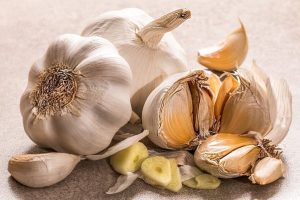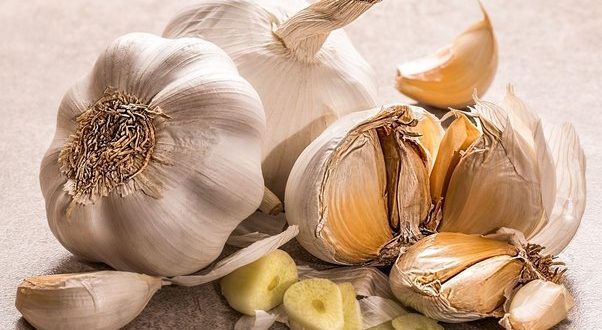Garlic, the pungent herb that graces many culinary creations, has long been hailed for its potential health benefits. One of its most celebrated virtues is its supposed positive impact on heart health. Let’s delve into the relationship between garlic and cardiovascular well-being.
1. Historical Health Ties:
-Ancient Wisdom: Garlic has been part of traditional medicine for centuries, with historical uses ranging from treating infections to promoting heart health.
2. Key Heart-Healthy Components:
– Allicin: Garlic owes its distinctive aroma and potential health benefits to allicin, a sulfur-containing compound. Allicin is believed to have anti-inflammatory and antioxidant properties that may contribute to heart health.
– Other Compounds: Beyond allicin, garlic contains various sulfur compounds and antioxidants, which researchers suggest may play a role in supporting cardiovascular function.
3. Lowering Blood Pressure:
– Hypertension Impact: Some studies propose that garlic might help lower blood pressure, a key factor in heart health. Allicin is thought to relax blood vessels, potentially contributing to improved blood flow.
4. Cholesterol Regulation:
– Cholesterol Levels: Garlic has been investigated for its potential to impact cholesterol levels. Some research suggests that it may modestly reduce total cholesterol and LDL cholesterol (“bad” cholesterol).
– Triglycerides: Garlic might also have a positive influence on triglyceride levels, another crucial marker of heart health.
5. Antiplatelet Effects:
– Blood Clot Prevention: Garlic has been explored for its potential antiplatelet effects, meaning it might help prevent excessive blood clot formation. This could contribute to a lower risk of cardiovascular events.
6. Dosage and Form:
– Effective Amounts: Studies often vary in the type and amount of garlic used. Raw garlic, garlic supplements, or aged garlic extract are common forms studied. Consulting with a healthcare professional can provide insights into appropriate dosage.
7. Incorporating Garlic into Diet:
– Fresh Garlic: Adding fresh garlic to meals is a flavorful way to enjoy its potential benefits. Crushing or chopping garlic before cooking may enhance the release of allicin.
– Supplements: For those who dislike the taste of garlic or want a standardized dose, supplements are available. However, it’s essential to choose supplements carefully and consult a healthcare provider.
8. Considerations and Precautions:
– Interaction with Medications: Garlic supplements may interact with certain medications, particularly blood thinners. It’s crucial to inform healthcare providers about garlic consumption, especially if undergoing surgery or taking anticoagulant medications.
– Individual Responses: Responses to garlic can vary among individuals. While some may experience benefits, others may not notice significant changes.
In summary, while garlic’s potential heart-healthy properties are intriguing, it’s not a substitute for a balanced diet, regular exercise, and other heart-healthy lifestyle choices. Including garlic as part of a varied and nutritious diet may contribute to overall cardiovascular well-being, but individual responses can vary. As always, consulting with a healthcare professional is advisable, especially for those with existing health conditions or taking medications.

Please support my work by upvoting this answer if it was helpful and also share as this information may be of help to other folks. If you enjoy exploring deep questions, feel free to follow me. Your support helps me grow as I invest time in sharing valuable insights. Thank you! 🙏
 Gistfox Your News Window To The World
Gistfox Your News Window To The World 




